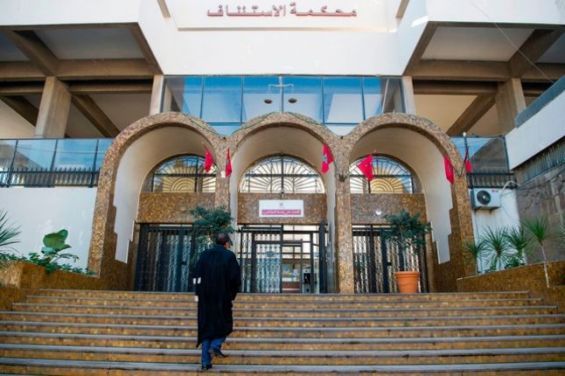Morocco is one of the countries in the MENA region with a lagging performance in the World Justice Project Rule of the Law report, released in February 2019.
Conducted by the International Justice Mission, a Washington-based international NGO focused on human rights, law and law enforcement, the report ranks Morocco 74th among 126 countries and jurisdictions.
As its name suggests, the index measures how the rule of law is experienced and perceived in these countries, through more than 120,000 households and 3,800 expert surveys. The Kingdom, for example, is among the Lower Middle-Income category, which includes countries like Georgia, Indonesia, Ghana, Nigeria, Pakistan and Vietnam.

Morocco scores in the index’s 2019 edition 0.5 out 1 point. Unlike last year, when the country was ranked by the International Justice Mission 67th, this year Morocco slumped in the global ranking by three points.
Fundamental Rights in Morocco
In the MENA region, the North African Kingdom is positioned 5th. Morocco is topped by the United Arab Emirates (UAE) 32nd, which leads the region’s list, followed by Jordan 49th, Tunisia 61st, and Algeria 72nd. Meanwhile, Morocco is ranked ahead of Lebanon 89th, Iran 102nd, Egypt 121st and Mauritania 122nd.
To measure each country’s performance, the World Justice Mission index relied on eight factors : Constraints on Government Powers, Absence of Corruption, Open Government, Fundamental Rights, Order and Security, Regulatory Enforcement, Civil Justice, and Criminal Justice.

Morocco’s best performance is linked to the Regulatory Enforcement index (51st), which looks into the extent to which regulations are fairly and effectively implemented and enforced.
The second-best performing factor in the Kingdom is Civil Justice (63), which measures whether ordinary people can resolve their grievances peacefully and effectively through the civil justice system.
Morocco has a weak score in the Open Government factor (87th), which investigates the «openness of government defined by the extent to which a government shares information, empowers people with tools to hold the government accountable, and fosters citizen participation in public policy deliberations».
The Kingdom’s worst score is registered in the Fundamental Rights’ factor, which «focuses on a relatively modest menu of rights that are firmly established under the Universal Declaration of Human Rights and are most closely related to rule of law concerns».
The global ranking is topped by Denmark 1st, Norway 2nd, Finland 3rd, Sweden 4th, Sweden 5th and the Netherlands 5th. Mauritania 22nd, Afghanistan 123rd, Democratic Republic of the Congo 124th, Cambodia 125th and Venezuela 126th are at the bottom of the ranking.





 chargement...
chargement...













